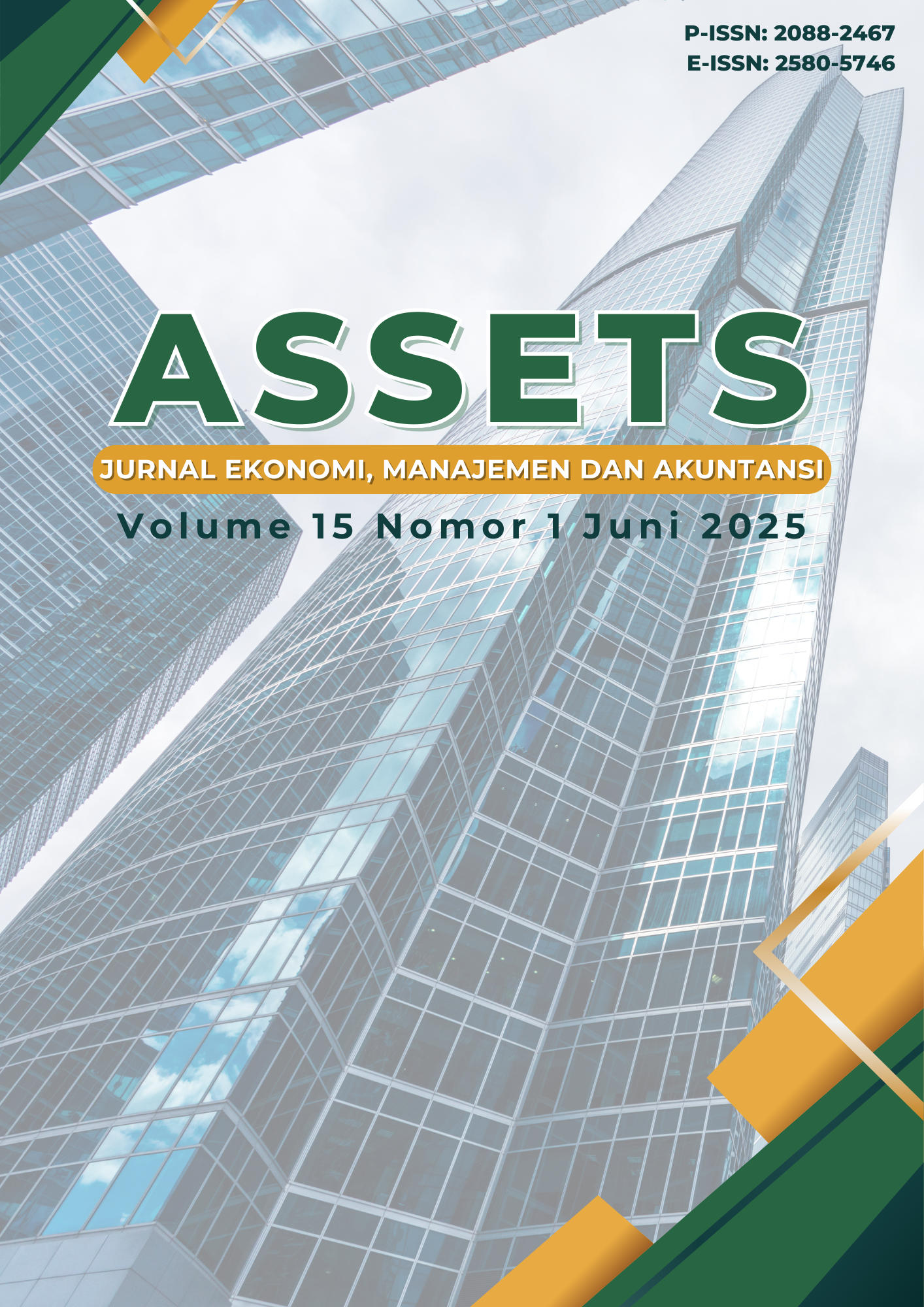THE EFFECT OF WORK LIFE BALANCE AND WORK ENGAGEMENT ON ORGANIZATIONAL COMMITMENT THROUGH JOB SATISFACTION
DOI:
https://doi.org/10.24252/assets.v15i1.56963Keywords:
Work Life Balance, Work Engagement, Job Satisfaction and Organizational CommitmentAbstract
This study aims to (1) analyze the influence of work life balance and work engagement on job satisfaction; (2) analyze the influence of work life balance, work engagement and job satisfaction on organizational commitment; (3) analyze the influence of work life balance and work engagement on organizational commitment through job satisfaction. This study was conducted at Universitas Terbuka Makassar. The sample used a purposive sampling method, namely sampling based on certain considerations or criteria. All samples amounted to 100 respondents at Universitas Terbuka Makassar. The data collection method used was direct interviews with parties involved in the problem being discussed and providing questionnaires to employees in accordance with the research being conducted. Data analysis was carried out using path analysis. The results of the analysis showed that (1) work life balance and work engagement had an effect on job satisfaction; (2) work life balance, work engagement and job satisfaction had an effect on organizational commitment; (3) work life balance and work engagement had an effect on organizational commitment through job satisfaction.
References
Aboramadan, M., Albashiti, B., Alharazin, H., & Dahleez, K. A. (2020). Human resources management practices and organizational commitment in higher education The mediating role of Work engagement. International Journal of Educational Management, 34 (1), 154–174
Abu-Shamaa, R., Al-Rabayah, W. A., & Khasawneh, R. T. (2015). The effect of job satisfaction and work engagement on organizational commitment. The Journal of Applied Business Research, 15(4), 7–27.
Ahuja, S., & Gupta, S. (2019). Organizational commitment and Work engagement as a facilitator for sustaining higher education professionals. International Journal of Recent Technology and Engineering, 7(6), 1846–1851
Allen, N. J., & Meyer, J. P. (1991). The measurement and antecedents of affective, continuance and normative commitment to the organization. Journal of Occupational Psychology, 63(1), 1-18
Azeem, Syed Mohammad and Akhtar, Nadeem. (2014). The Influence of Work Life Balance and Job Satisfaction on Organizational Commitment of Healthcare Employees. International Journal of Human Resource Studies ISSN 2162-3058. 2014, Vol. 4, No. 2
Bakker, A.B. and Demerouti, E. (2014). Job demands-resources theory. Oliver, A., & Rothmann, S. (2007). Antecedents of Work Engagement in a Multinational Oil Company. SA Journal of Industrial Psychology, 33(3), 49–56.
Bavendam, J. (2005). How do you Manage Turnover? In a Time of Lean Organizations and Dwinding Pools of Experienced New-Hires. Journal Special Report, Vol. 3, Bavendam Research Incorporated, Mercer Island. http:www.Bavendam.com
Carlson et al, (2013), “Work-family balance and supervisor appraised citizenship behavior : The link of positive affect”
Fred Luthans, 2006, Perilaku Organisasi, Alih Bahasa V. A Yuwono, Penerbit. Andi, Yogyakarta
Downloads
Published
How to Cite
Issue
Section
License

This work is licensed under a Creative Commons Attribution-NonCommercial-ShareAlike 4.0 International License.



























